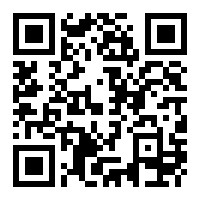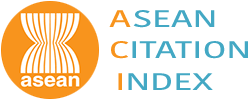Infodemic, Health Promotion Efforts, and Preventive Behavior During the COVID-19 Pandemic in Indonesia: A Quantitative Analysis Study
Abstract
Keywords
Full Text:
PDFReferences
1. World Health Organization. Novel Coronavirus (2019-nCoV): Situation Report -13. Geneva: World Health Organization; 2020.
2. World Health Organization. Managing the COVID-19 infodemic: Promoting healthy behaviors and mitigating the harm from misinformation and disinformation. Geneva: World Health Organization; 2020.
3. Pulido CM, Ruiz EL, Redondo SG, Villarejo CB. A new application of social impact in social media for overcoming fake news in health. Int J Environ Res Public Health. 2020; 17 (7): 2430.
4. Kementerian Komunikasi dan Informasi Republik Indonesia. Kominfo Beri Edukasi Pemanfaatan Internet dalam Cegah COVID-19. Jakarta: Kementerian Komunikasi dan Informasi Republik Indonesia; 2020.
5. Littejohn SW, Foss KA, Oetzel JG. Theories of human communication. 11th ed. Illinois: Waveland Press; 2017.
6. Zarocostas J. How to fight an infodemic. Lancet. 2020; 395 (10225): 676.
7. Luger TM. Health Beliefs/Health Belief Model. In: Gellman MD, editors. Encyclopedia of behavioral medicine. Switzerland: Springer, Cham; 2020.
8. Badan Pusat Statistik. Penduduk Indonesia menurut Provinsi 1971,1980, 1990, 1995, 2000, dan 2010. Jakarta: Badan Pusat Statistik; 2021.
9. World Health Organization. Novel Coronavirus (2019-nCoV): Situation Report -10. Geneva: World Health Organization; 2020.
10. Ogie RI, James S, Moore A, et al. Social media use in disaster recovery: A systematic literature review. Int J Disaster Risk Reduct. 2022; 70 (102783).
11. Schillinger D, Chittamuru D, Ramírez AS. From “infodemics” to health promotion: A novel framework for the role of social media in public health. Am J Public Health. 2020; 110 (9): 1393–1396.
12. Pulido CM, Villarejo -Carballido B, Redondo-Sama G, Gómez A. COVID-19 infodemic: More retweets for science-based information on coronavirus than for false information. Int Sociol. 2020; 35: 377–392.
13. Jindal S, Anand G. Fighting an infodemic in the time of the COVID-19 pandemic in India: Leveraging technology and social media. J Prev Med Public Health. 2020; 53 (5): 311–312.
14.Tsao SF, Chen H, Tisseverasinghe T, et al. What social media told usin the time of COVID-19: A scoping review. Lancet. 2021; 3 (3): 175–194.
15. Islam MS, Sarkar T, Khan SH, Mostofa AH. COVID-19-related infodemic and its impact on public health: A global social media analysis. Am J Trop Med Hyg. 2020; 103 (4): 1621–1629.
16. Kouzy R, Abi Jaoude J, Kraitem A, et al. Coronavirus goes viral: Quantifying the COVID-19 misinformation epidemic on Twitter. Cureus. 2020; 12 (3): e7255.
17. Giustini D, Ali SM, Fraser M, Kamel Boulos MN. Effective uses of social media in public health and medicine: A systematic review of systematic reviews. Online J Public Health Inform. 2018; 10 (2): e215.
18. Al-Dmour H, Masa’deh R, Salman A, et al. Influence of social media platforms on public health protection against the COVID-19 pandemic via the mediating effects of public health awareness and behavioral changes: Integrated model. J Med Internet Res. 2020; 22 (8): e19996.
19. Kim S, Kim S. Analysis of the impact of health beliefs and resource factors on preventive behaviors against the COVID-19 pandemic. Int J Environ Res Public Health. 2020; 17 (22): 8666.
20. Eichenberg C, Grossfurthner M, Andrich J, et al. The relationship between the implementation of statutory preventive measures, perceived susceptibility of COVID-19, and personality traits in the initial stage of corona-related lockdown: A German and Austrian population online survey. Front Psychiatry. 2021; 12: 596281.
21. Leung GM, Lam TH, Ho LM, et al. The impact of community psychological responses on outbreak control for severe acute respiratory syndrome in Hong Kong. J Epidemiol Commun Health. 2023; 57 (11): 857–863.
22. Mertens G, Gerritsen L, Duijndam S, et al. Fear of the coronavirus (COVID-19): Predictors in an online study conducted in March 2020. J Anxiety Disord. 2020; 74: 102258.
23. Wyman O. A way forward for health promotion and wellness in a post-pandemic world; 2021.
24. Kington RS, Arnesen S, Chou WS, et al. Identifying credible sources of health information in social media: Principles and attributes. NAM Perspect. 2021.
25. Tasnim S, Hossain MM, Mazumder H. Impact of rumors and misinformation on COVID-19 in social media. J Prev Med Public Health. 2020; 53 (3): 171–174.
26. Yustitia S, Ashrianto PD. An analysis on COVID-19 disinformation triangle in Indonesia. Komunikator. 2020; 12 (2): 116-128.
DOI: http://dx.doi.org/10.21109/kesmas.v18isp1.7034
Refbacks
- There are currently no refbacks.































